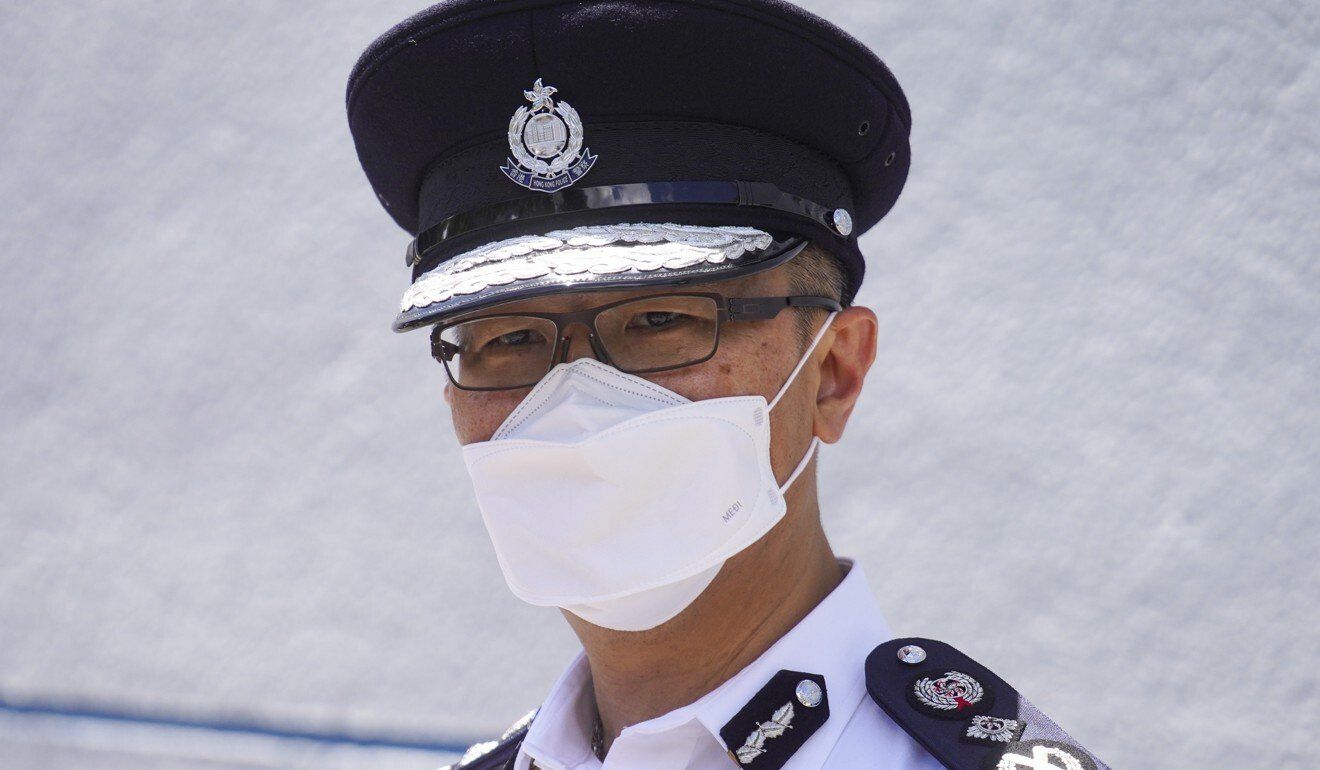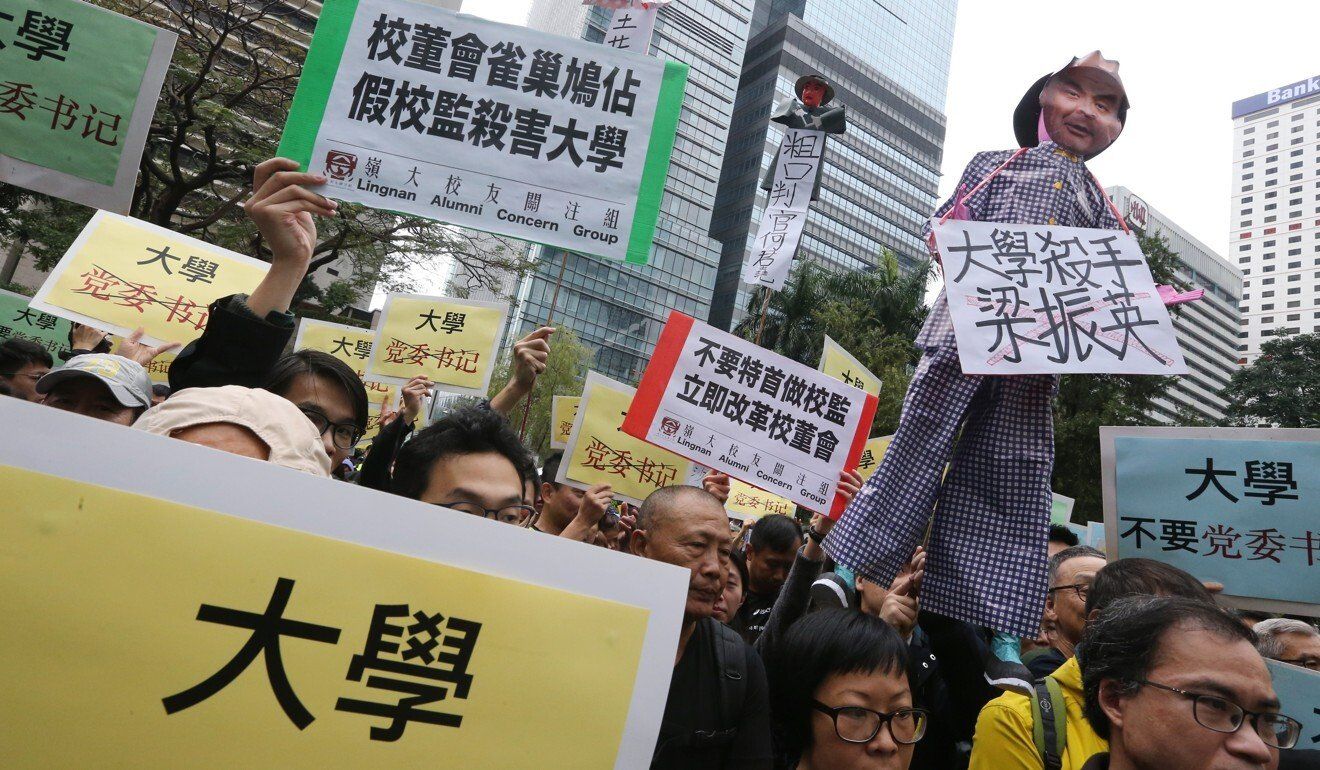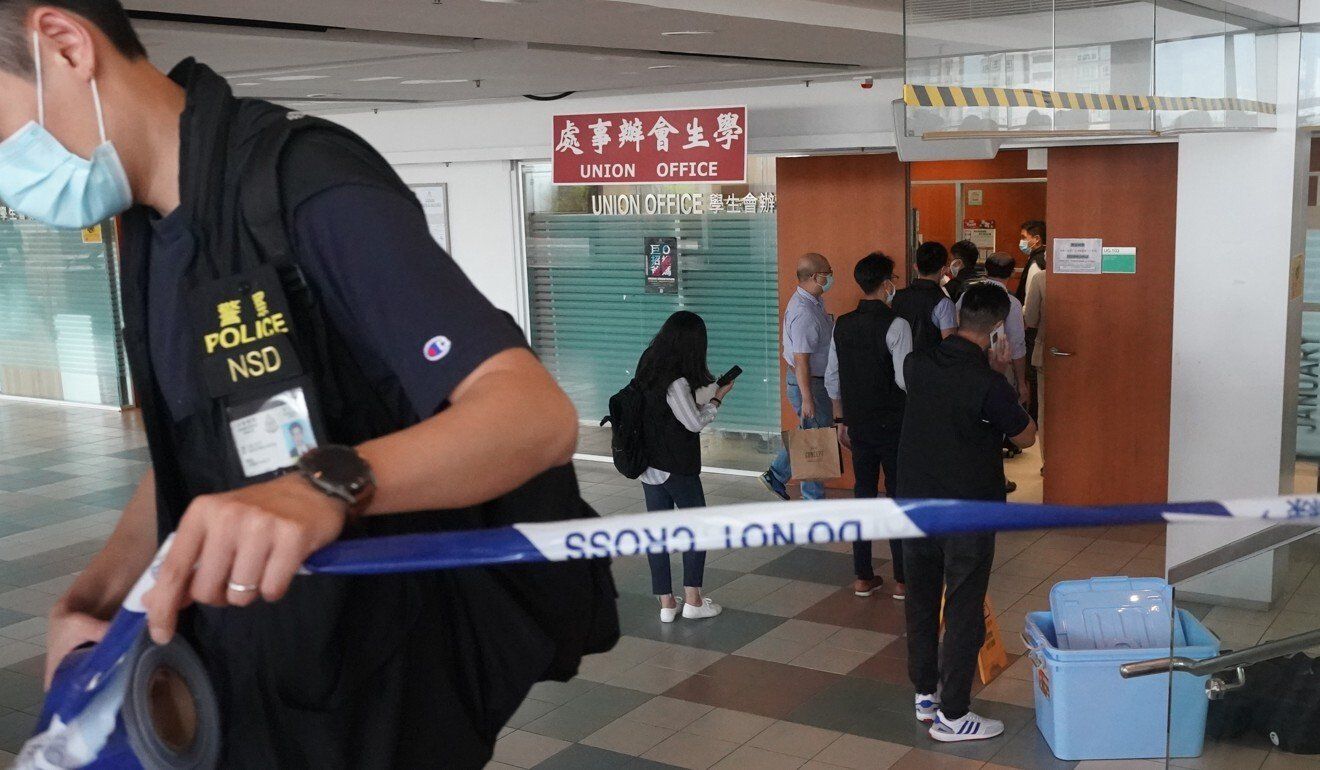Hong Kong News

No evidence Hong Kong teachers’ union breached security law: top adviser
A top adviser to Hong Kong’s leader has said no evidence exists to support the prosecution of the heads of the city’s largest teachers’ union for national security crimes, despite education authorities cutting ties with the group and warning law enforcers would “take appropriate action” if necessary.
Executive councillor Ronny Tong Ka-wah emerged on Saturday as the first pro-establishment heavyweight to insist on the innocence of the 95,000-strong Professional Teachers’ Union (PTU).
Tong, a senior counsel, told the Post that none of the group’s past comments or actions, including support at times for teachers’ strikes at the height of the 2019 anti-government movement, could be construed as falling foul of the national security law.
“There is no criminal offence as far as I can see that the PTU is guilty of, let alone national security law charges,” he said, noting the union did not take part in an unofficial primary election held by pan-democrats last year. Dozens of key figures in the camp who took part in the contest were later arrested on suspicion of breaching the security law.
 Police chief Raymond Siu.
Police chief Raymond Siu.
Secretary for Education Kevin Yeung Yun-hung, however, was more cautious in taking a stance, instead urging teachers to have a “thorough rethink” on their relationship with the PTU.
“We hope teachers will have a more thorough consideration … We have a duty to point out a problem when we see it and remind people of it,” Yeung said.
“When it comes to enforcement matters, I believe relevant agencies will look at the issue and take appropriate actions.”
Commissioner of Police Raymond Siu Chak-yee told state media Phoenix TV on Thursday that the force would “definitely investigate” any wrongdoings if national security matters were involved, without going into the specifics of past comments and acts by the PTU that could have violated the law.
Last Saturday, the Education Bureau said it would no longer recognise the PTU, stripping it of its status as a professional group, hours after two Communist Party mouthpieces called it a “malignant tumour” which had to be removed.
Explaining the decision, a spokesman for the bureau had said PTU comments and actions in recent years had rendered it no different from any other political group, pointing to its participation in an alliance behind the June 4 Tiananmen vigil – from which the body had recently withdrawn – and the Civil Human Rights Front, organiser of the city’s yearly July 1 march and some of its biggest protest rallies.
The spokesman also accused the union of bringing politics to campuses through its promotion of teacher strikes.
 University alumni concern groups, including the Professional Teachers’ Union march to Government House in a protest in 2016.
University alumni concern groups, including the Professional Teachers’ Union march to Government House in a protest in 2016.
Since the bureau’s decision, the PTU had taken a number of high-profile steps that appeared to centre on industry matters, including withdrawing from the Brussels-based Education International after a pro-Beijing newspaper slammed the relationship, and launching a working group to boost awareness of Chinese history and culture among teachers and students.
Asked about the PTU’s past comments such as urging students to avoid going to Polytechnic University for their own safety during the 2019 siege of the campus at the height of the anti-government protests, Yeung only said any lawbreaking remarks had to be looked at “as a whole”.
He also left the door open when asked whether PTU actions in the past week would allow authorities to re-engage with it in the future, saying he would “never say never”, but stressing the decision to cut ties was not “made lightly”.
“If we need to make adjustments to the relationship, we will. But we have to look at the long-term behaviour of the union,” he said.
Lau Siu-kai, vice-president of the semi-official Chinese Association of Hong Kong and Macau Studies, however believed the chances of a formal rapprochement between the two sides were slim.
In the short term, the PTU might have to prove itself innocent of national security crimes, he said.
“In the long term, no one has a crystal ball. But there may yet be new groups to emerge to take PTU’s place by then,” he said.
 Police raid the HKU student union office over a motion mourning the death of a man who had stabbed an officer.
Police raid the HKU student union office over a motion mourning the death of a man who had stabbed an officer.
The city’s education chief was also asked about other hot-button issues in the past week, such as the decision by the governing council of the University of Hong Kong (HKU) to banish from campus students behind a motion to mourn the death of a man who had stabbed a police officer.
Yeung said he did not think the move was to “punish” the students, but rather to “manage risks” and protect their peers and teachers. He did not elaborate on those risks.
Meanwhile, a group of some 600 HKU graduates, including pro-democracy activist and one-time Legislative Council hopeful Sunny Cheung Kwan-yang, signed an online petition demanding the university council rescind its decision to ban the students from school grounds.











